In today’s fast-paced digital landscape, small businesses face unique challenges in competing with larger, more established companies. Digital marketing has become essential for small businesses to not only survive but thrive in this environment. By leveraging various digital marketing strategies, such as search engine optimization (SEO), social media marketing, and content marketing, small businesses can reach a wider audience, engage potential customers, and convert them into loyal clients.
Unlike traditional marketing methods, digital marketing offers small businesses the ability to scale their efforts efficiently and cost-effectively. Throughout this blog, we will explore the top benefits of digital marketing for small businesses and discuss key strategies to help them succeed in an increasingly competitive market.
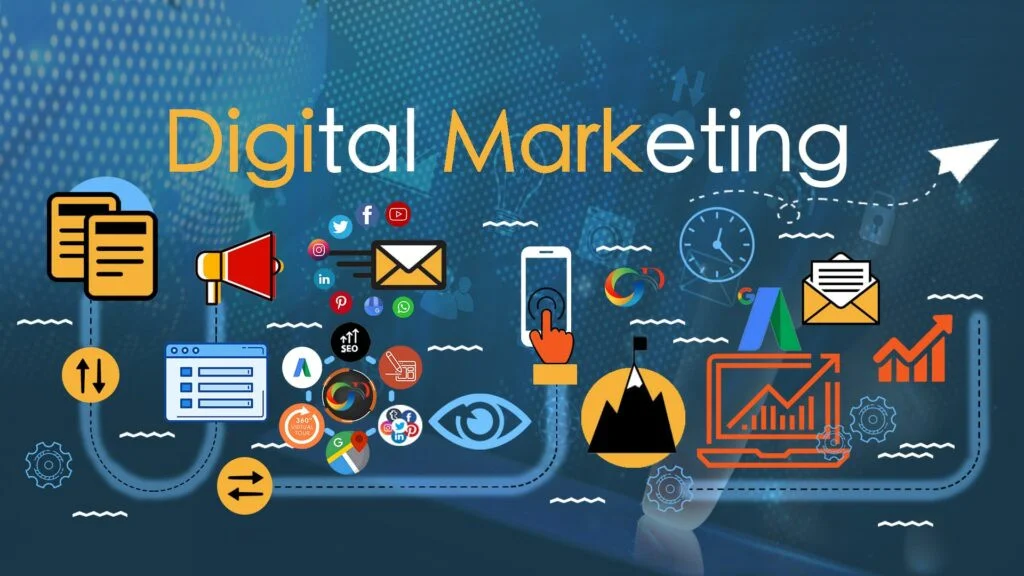
Why Digital Marketing is Essential for Small Businesses?
Digital marketing is crucial for small businesses looking to establish a strong foothold in a crowded marketplace. With the right digital marketing strategy, small businesses can effectively target their audience, engage with potential customers, and convert them into loyal clients. The digital channels available today, such as social media platforms and email marketing, allow businesses to create personalized and impactful marketing campaigns.
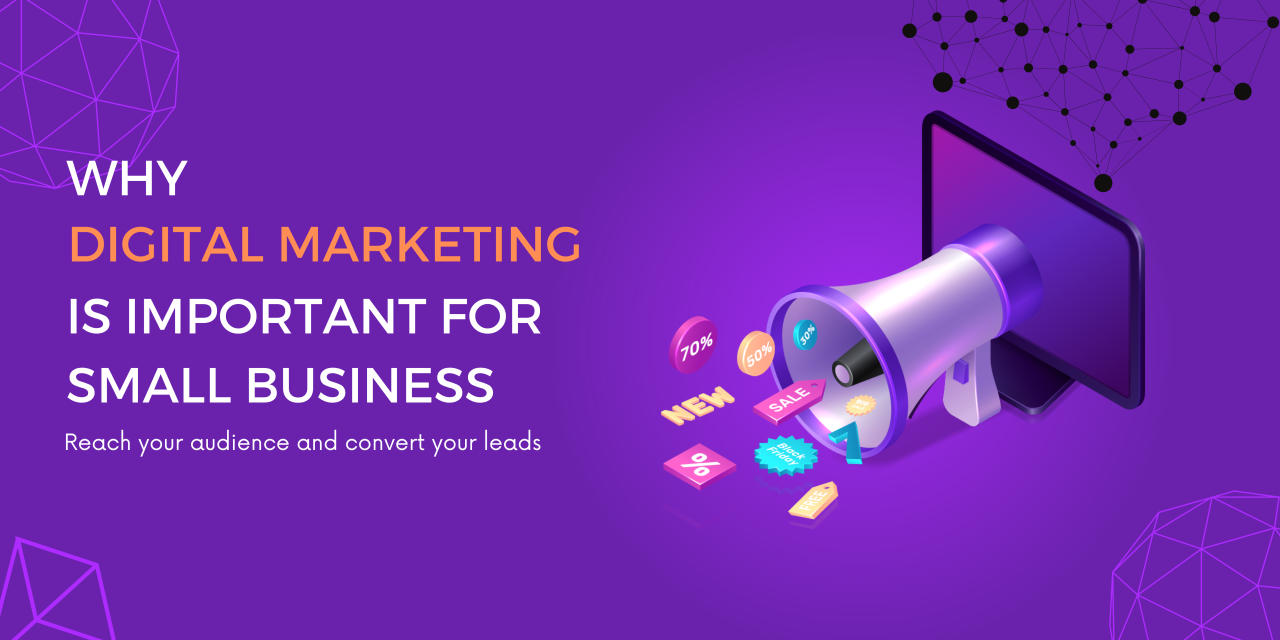
These digital marketing efforts are not only more cost-effective than traditional marketing methods, but they also provide measurable results, enabling small businesses to optimize their strategies continually. In a world where online presence often determines success, having a robust digital marketing plan is no longer optional—it’s essential for small business growth and sustainability.
Reach a Wider Audience Online
One of the most significant advantages of digital marketing for small businesses is the ability to reach a wider audience online. Establishing a strong online presence through a well-designed website and active social media profiles helps build credibility and trust with potential customers. Digital marketing channels, such as SEO and content marketing, play a pivotal role in expanding a business’s reach beyond its local market.
For instance, social media platforms like Facebook, Instagram, and LinkedIn provide opportunities for businesses to engage directly with their target audience, share valuable content, and promote their products or services. These platforms are not only effective for building brand awareness but also for driving traffic to a business’s website, leading to higher conversion rates.
By strategically utilizing digital marketing channels, small businesses can scale their customer base and compete with larger companies on a global stage, all while maintaining cost-effectiveness and maximizing their marketing budget.
Cost-Effective Customer Acquisition
One of the most compelling advantages of digital marketing over traditional marketing methods is its cost-effectiveness, particularly when it comes to customer acquisition. Traditional marketing channels like print advertising and TV commercials often require substantial investments, which can be prohibitive for small businesses operating on limited budgets.
In contrast, digital marketing offers a more affordable alternative through targeted campaigns that reach specific audiences most likely to convert into customers.
By utilizing digital channels such as search engine marketing (SEM), social media marketing, and email marketing, small businesses can lower their customer acquisition costs significantly. These platforms allow businesses to create highly targeted campaigns that focus on particular demographics, interests, and behaviors, ensuring that marketing efforts are not wasted on uninterested audiences.
Benefits of a Comprehensive Digital Marketing Strategy
A comprehensive digital marketing strategy is crucial for small businesses aiming to achieve sustained growth and success. This strategy typically involves a combination of various digital marketing techniques, including search engine optimization (SEO), pay-per-click (PPC) advertising, and social media marketing.
Each of these strategies plays a distinct role in driving business growth. For instance, SEO helps improve a website’s visibility on search engines, leading to increased organic traffic, while PPC offers immediate visibility and can drive quick results through targeted ads.
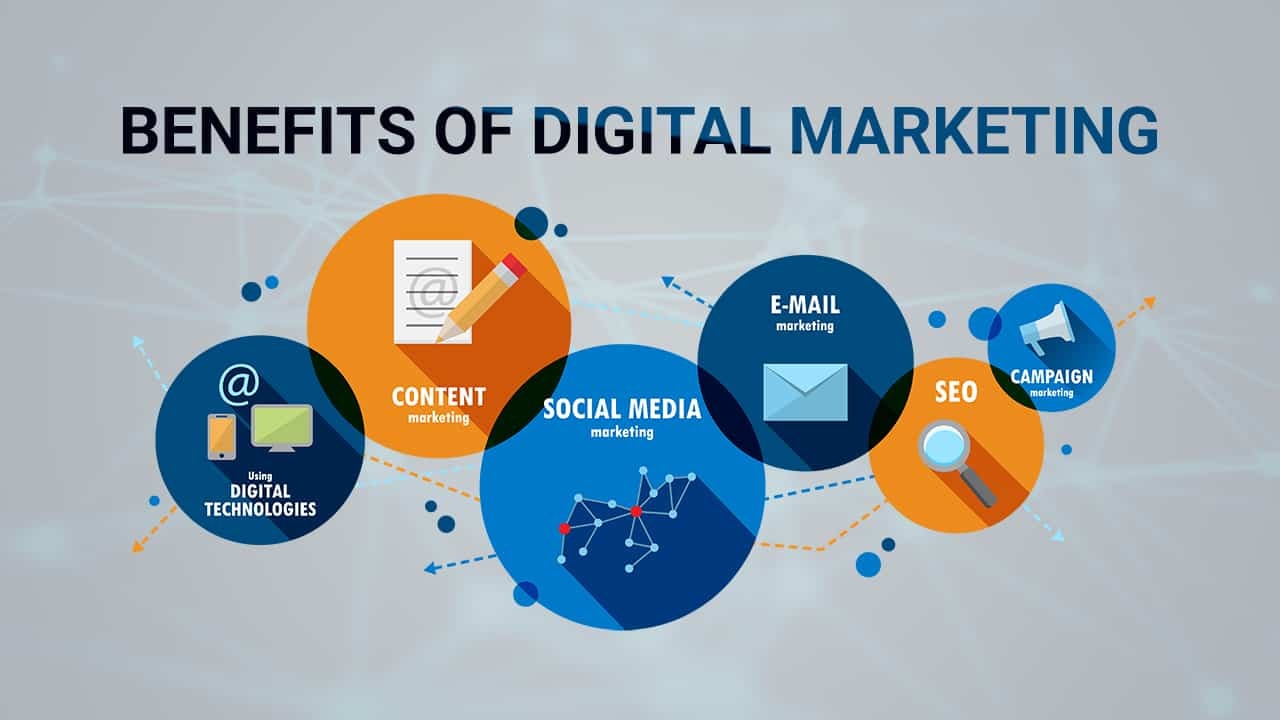
Social media marketing, on the other hand, enhances brand visibility and customer engagement, creating a loyal customer base over time. By integrating these digital marketing strategies, small businesses can create a cohesive plan that addresses different stages of the customer journey—from awareness to conversion and retention.
A strong digital marketing strategy also allows businesses to track and measure the effectiveness of their campaigns through analytics tools like Google Analytics, enabling continuous optimization and improvement.
Ultimately, a well-rounded digital marketing strategy not only drives traffic and leads but also fosters long-term business success by adapting to the evolving digital landscape and meeting customer needs effectively.
Building Brand Recognition and Loyalty
Digital marketing is instrumental in establishing and enhancing a small business’s brand identity. Through consistent and strategic use of digital channels, businesses can craft a unique brand voice that resonates with their target audience. Social media marketing plays a particularly vital role in fostering brand loyalty. Platforms like Facebook, Instagram, and Twitter enable businesses to interact with customers in real time, creating opportunities to build strong, emotional connections.
By sharing engaging content, responding to customer inquiries, and showcasing brand values, businesses can create a community around their brand. This connection goes beyond mere recognition; it builds trust and loyalty, encouraging customers to return and advocate for the brand. Ultimately, a well-executed digital marketing strategy not only increases visibility but also solidifies a brand’s reputation, ensuring long-term success in a competitive market.
Increase Revenue and Business Growth
Digital marketing directly impacts a small business’s revenue and growth potential. By deploying targeted digital marketing campaigns, businesses can significantly increase their conversions and sales. For instance, a well-optimized SEO strategy can drive organic traffic to a business’s website, while pay-per-click (PPC) advertising provides immediate visibility to highly targeted audiences.
When combined with effective social media marketing and email marketing, these strategies can create a powerful synergy that boosts conversions.
Consider the case of a small local retailer that used digital marketing to expand its online presence. By optimizing their website for local search terms and launching targeted social media campaigns, they saw a 40% increase in online sales within six months.
Another example is a service-based business that utilized email marketing to retain customers, resulting in a 20% increase in repeat business. These examples highlight how digital marketing not only drives immediate revenue but also supports sustainable business growth by continuously attracting and retaining customers.
Key Digital Marketing Channels for Small Businesses
For small businesses, selecting the right digital marketing channels is crucial to reaching their target audience effectively. Essential channels include search engine optimization (SEO), which enhances a website’s visibility on search engines like Google, and social media marketing, which engages audiences on platforms such as Facebook, Instagram, and LinkedIn. Email marketing is another powerful channel, offering direct communication with customers and high conversion rates.
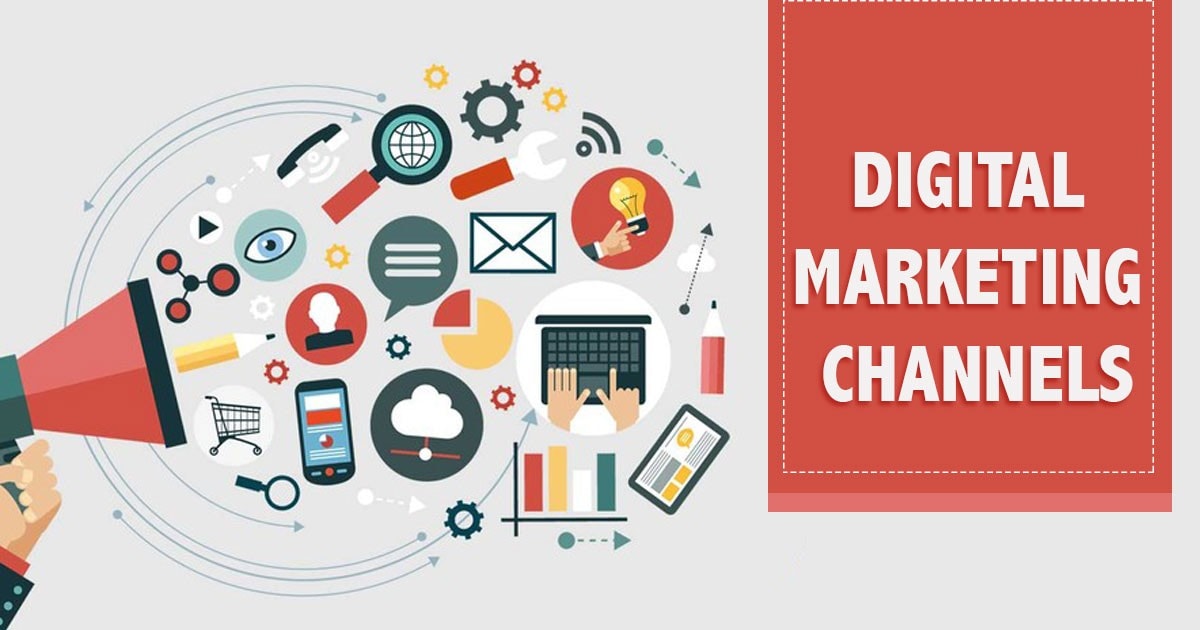
Each of these channels serves a unique purpose in a comprehensive digital marketing strategy. SEO drives organic traffic, social media builds brand awareness and engagement, and email marketing fosters customer loyalty. By carefully choosing and integrating these channels based on their specific audience and goals, small businesses can maximize their marketing efforts, ensuring they reach the right people at the right time with the right message. This strategic approach not only increases visibility but also drives meaningful interactions that lead to long-term business success.
Creating a Digital Marketing Plan for Small Businesses
Developing an effective digital marketing plan begins with clearly defining your business objectives and identifying your target audience. The first step is to outline what you want to achieve, whether it’s increasing brand awareness, driving website traffic, or boosting sales. Once your goals are set, you can create a digital marketing strategy that aligns with these objectives.
This involves selecting the right digital channels—such as SEO, social media, and email marketing—and crafting campaigns that resonate with your target audience. Defining your target audience is crucial, as it ensures your marketing efforts are focused and effective, leading to higher conversion rates and better use of your marketing budget.
Social Media Marketing: A Must for Small Businesses
Maintaining a strong presence on social media platforms is essential for small businesses aiming to increase brand visibility and engage with their target audience. Social media marketing offers an unparalleled opportunity to connect with potential customers in real time, allowing businesses to build relationships and foster brand loyalty.
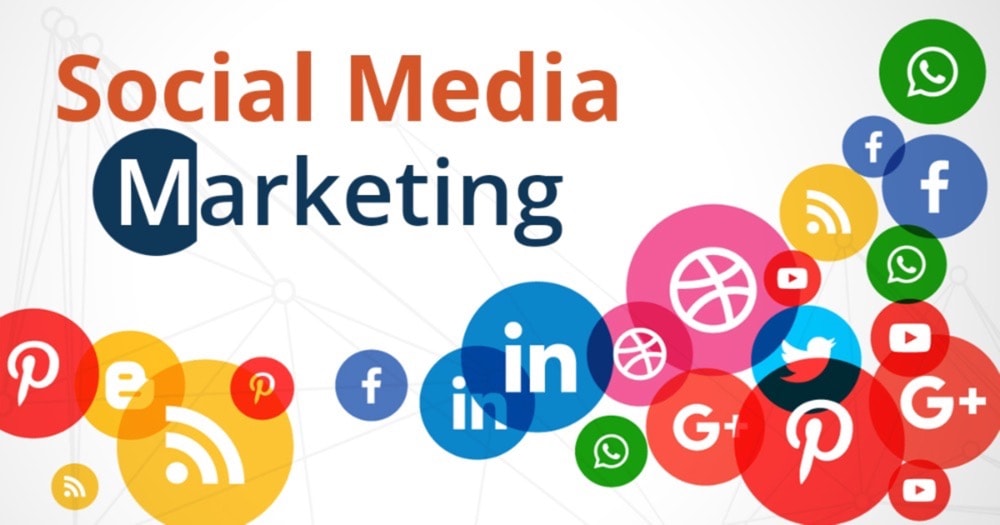
Visually appealing social media posts, such as images, videos, and infographics, are particularly effective in capturing attention and driving engagement. To maximize impact, small businesses should create targeted campaigns tailored to specific demographics and interests.
Utilizing features like Instagram Stories or Facebook Ads, businesses can ensure their content reaches the right audience at the right time, resulting in increased brand awareness and higher conversion rates. By consistently engaging on social media, small businesses can stay top-of-mind for their customers and drive continuous growth.
Email Marketing and Content Marketing
Email marketing is a powerful tool for personalized communication, allowing small businesses to directly reach their customers with tailored messages. By segmenting their email lists, businesses can send targeted campaigns that resonate with specific customer groups, leading to higher open rates and conversions.

Content marketing complements this by attracting and converting potential customers through valuable, informative content. Blog posts, videos, and guides not only drive traffic to a business’s website but also establish the business as an authority in its industry. When integrated with other digital marketing efforts, such as social media and SEO, content marketing can significantly amplify a brand’s reach and effectiveness.
By aligning content with email marketing campaigns, small businesses can nurture leads, build trust, and ultimately convert prospects into loyal customers, driving sustained business growth.
Measuring and Optimizing Digital Marketing Performance
To ensure your digital marketing efforts are successful, it’s essential to track and measure their performance using analytics tools like Google Analytics. These tools provide insights into how your campaigns are performing, including metrics like website traffic, conversion rates, and user behavior.
Measuringreturn on investment (ROI) is key to understanding the effectiveness of your strategies and identifying areas for improvement. Regularly reviewing and analyzing these metrics allows you to optimize your marketing efforts, making data-driven adjustments to enhance performance. Continuous analysis and optimization ensure that your digital marketing strategy remains effective, adaptable, and aligned with your business goals.
The Future of Digital Marketing for Small Businesses
As digital marketing continues to evolve, small businesses must stay ahead of emerging trends such as AI-driven marketing, personalized customer experiences, and video content. Preparing for these changes involves staying updated with the latest digital marketing techniques and being agile in adopting new strategies.
The rise of voice search and the increasing importance of data privacy are also shaping the future of digital marketing. By staying informed and adaptable, small businesses can navigate future challenges and continue to leverage digital marketing to drive growth and stay competitive.

Embrace Digital Marketing for Small Business Success
Digital marketing offers numerous benefits for small businesses, from reaching a wider audience to increasing revenue through targeted strategies. By integrating digital marketing into their business plans, small businesses can compete with larger companies and achieve sustainable growth.
As discussed, strategies like SEO, social media marketing, and content marketing are essential tools in this journey. Now is the time for small business owners to take their digital marketing to the next level. Partner with Mastodon Marketing to develop a strong digital marketing strategy that drives results and ensures long-term success.



